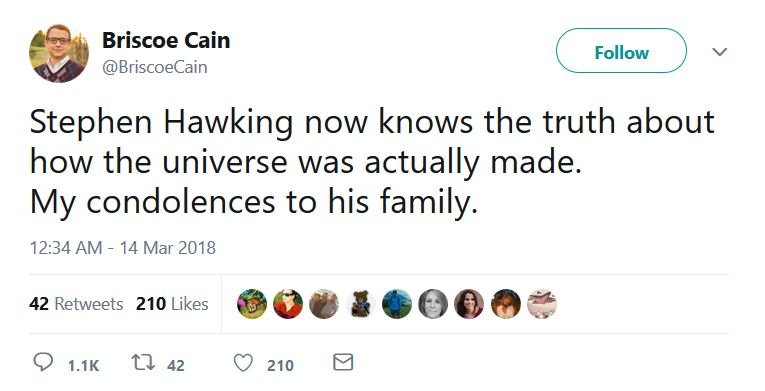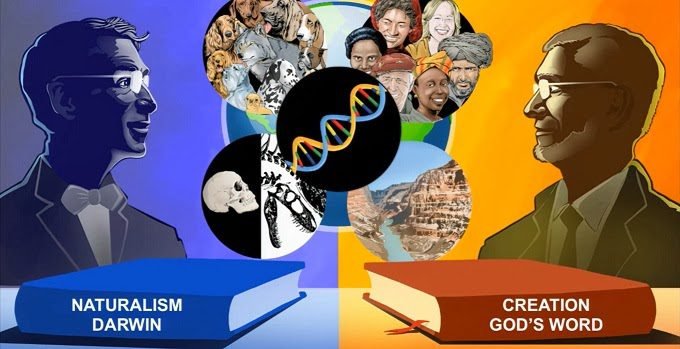I recently received a rare polite email from an Evangelical Christian. After sharing his testimony, the letter writer asked me three questions. Rather than privately responding to his questions, I decided to answer them in a post. I hope his questions and my answers will be helpful to the readers of this blog. Please leave your pithy ruminations in the comment section.
Looking back, would you say you truly believed, repented, and tried to live a sanctified life in sincerity?
The short answer is yes. From the age of fifteen through age of fifty, I devoted my life to following the teachings of the Bible. Believing that the Bible was the inspired, inerrant, infallible Word of God, I daily attempted, by and through the grace of God, to put its words into practice. I wasn’t a perfect Christian, but the bent of my life, as John MacArthur says, was towards righteousness. As a pastor, I devoted my life to studying and preaching the Bible, leading people to saving faith in Jesus Christ, and helping Christians put into practice in their lives the teachings of the Bible.
As a follower of Jesus, I came into contact with scores of Christians — as friends, colleagues, and congregants. Not one person ever said that they doubted that I was a Christian. To the person, they believed that I was a saved, sanctified, sold-out child of God. My life as a committed Christian is beyond dispute. That some Evangelicals can’t square my present life with my past is not my concern. I know this: I once was saved and, to use the vernacular of Christianity, now I am lost. Jesus was once my God, Lord, and Savior. Today, he is a fading memory, a mere mortal who lived and died and now lies buried in some nondescript Middle Eastern grave. For further information about my life, please read the posts found on the WHY page.
Is there ever a conviction (currently) that the bible might be true?
True in what way? Factual or historical? Sure. Some of the events mentioned in the Bible are historical, and some of the people actually lived. That said, much of the Bible is myth; at best, stories written by humans meant to explain their understanding of the world. I suspect what you are really asking here is whether I ever have thoughts that the Bible might be supernatural words given to inspired writers by the Christian God. The answer to THAT question is no. I’m an atheist, so I don’t believe in the existence of gods — including the Christian God, so the Bible, by default, cannot be of supernatural origin.
While I still find some of Christ’s teachings — say the Sermon on the Mount and the Beatitudes, and parts of Psalms, Proverbs, and Ecclesiastes inspiring, I view most of the Bible as ancient — oft contradictory — teachings and myths that are largely irrelevant to moderns in the twenty-first century. The Evangelical notion that the Bible — due to its inspired and inerrant nature — is different from all the other books ever written is laughable and cannot be intellectually sustained. Inerrancy is a doctrine built upon hubris, arrogance, and deliberate ignorance. There are too many textual errors and contradictions in the Bible for it to be considered in any way inerrant. Agnostic New Testament scholar Bart Ehrman’s books nail shut the coffin of inerrancy. Some “might” be able to maintain their Christian faith after reading Ehrman’s books, but it is impossible for anyone who has read his books and honestly wrestled with the data to maintain that the Bible is inerrant.
Books by Bart Ehrman
Jesus, Interrupted: Revealing the Hidden Contradictions in the Bible (And Why we Don’t Know About Them)
Misquoting Jesus: The Story Behind Who Changed the Bible and Why
Forged: Writing in the Name of God — Why the Bible’s Authors Are Not Who We Think They Are
Jesus Before the Gospels: How the Earliest Christians Remembered, Changed, and Invented Their Stories of the Savior
How Jesus Became God: The Exaltation of a Jewish Preacher from Galilee
Lost Scriptures: Books that Did Not Make It into the New Testament
Lost Christianities: The Battles for Scripture and the Faiths We Never Knew
We just had that “great American eclipse” come by, and I was in awe that the sun and the moon are in our perception the same size (a mathematical anomaly even to the staunchest evolutionist), which makes me see God as the Creator. Can you attribute the complexity of our universe to mere chance?
I am not sure why you would think our perception of the size of the moon in relation to the sun speaks in any way to the existence of the Evangelical God. Why must there be some higher meaning?
The word “complexity” often means something different to Evangelicals from what it means to unbelievers. You, of course, see your version of God in this complexity. Let me ask you this, if the complexity of the universe requires a Creator, and God himself is a complex being, who, then, created God? You might argue that God exists outside of time and space, but there is no evidence for this claim. Such a belief requires faith, and faith is, by definition, beyond or contrary to reason. If God does indeed exist outside of space and time, and Jesus is God, what are we to make of the Bible verses that suggest that Jesus, in space and time, became the son of God?
For the sake of argument, suppose I agree with your premise that the universe with all its wonders suggests that there is a Creator. How could I determine that it was your version of the Christian God who is this Creator? Why is it any more likely that this Creator is your God, than it is any of the other Gods humans have worshiped in the past or presently worship? I can look at a starry night sky and easily understand how someone might conclude that some sort of deistic being created the universe. What is the bridge, however, that gets us from there being A GOD to that God being the Evangelical God? I see no rational argument for it being any more likely that this Creator is the Christian God. This Creator could just as easily be Vishnu, Mbombo, Nanabozho, El, Pango, or an advanced race of aliens who created our “reality” as some sort of video game. Again, this brings us back to faith. You believe what you do by faith. Faith is impervious to reason and rational inquiry, as Hebrews 11 makes clear. I have backed countless Evangelicals into the corner with my challenges of their beliefs (especially about the inspiration and inerrancy of the Bible), only to have them run to the safety of the house of faith. Once faith is invoked, no further discussion can take place. It is only when Evangelical Christians begin to doubt the veracity and authority of their foundation — the Bible — that faith can be overcome. It is no surprise, then, that Evangelical preachers lie about the nature of the Biblical text. They know if congregants begin to doubt that the Bible is what their pastors say it is, down comes the house of cards. Once Evangelicals dare to consider that they might be wrong and that what they have been taught their entire lives might be false, then, and only then, can they take an honest, open, follow-the-evidence-wherever-it-leads look at the Biblical text and the claims of Christianity. Most often, such intellectual pursuits lead to liberal Christianity or, as in my case, atheism. My recommendation, then, for readers is not to take that step if they are not ready to question their faith in earnest.
Bruce Gerencser, 68, lives in rural Northwest Ohio with his wife of 47 years. He and his wife have six grown children and sixteen grandchildren. Bruce pastored Evangelical churches for twenty-five years in Ohio, Texas, and Michigan. Bruce left the ministry in 2005, and in 2008 he left Christianity. Bruce is now a humanist and an atheist.
Your comments are welcome and appreciated. All first-time comments are moderated. Please read the commenting rules before commenting.
You can email Bruce via the Contact Form.
Share This Post On Social Media:









 Atheism is the slavish and simple-minded embrace of ignorance. When people call themselves “atheists” today, what they really mean is Christophobes, people with an irrational hatred and fear of Christianity. The arguments they make against Christianity are both bizarre and silly.
Atheism is the slavish and simple-minded embrace of ignorance. When people call themselves “atheists” today, what they really mean is Christophobes, people with an irrational hatred and fear of Christianity. The arguments they make against Christianity are both bizarre and silly.


